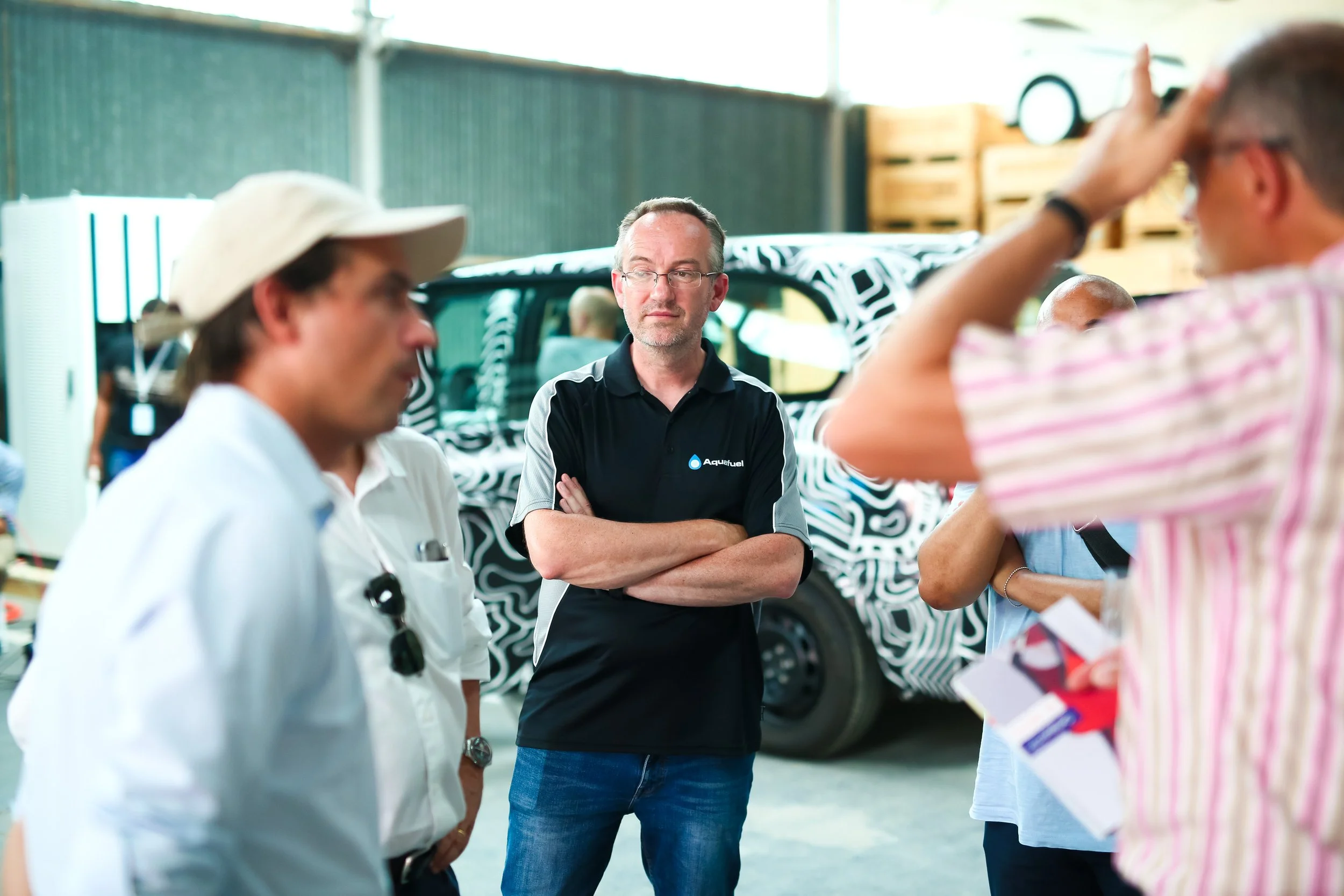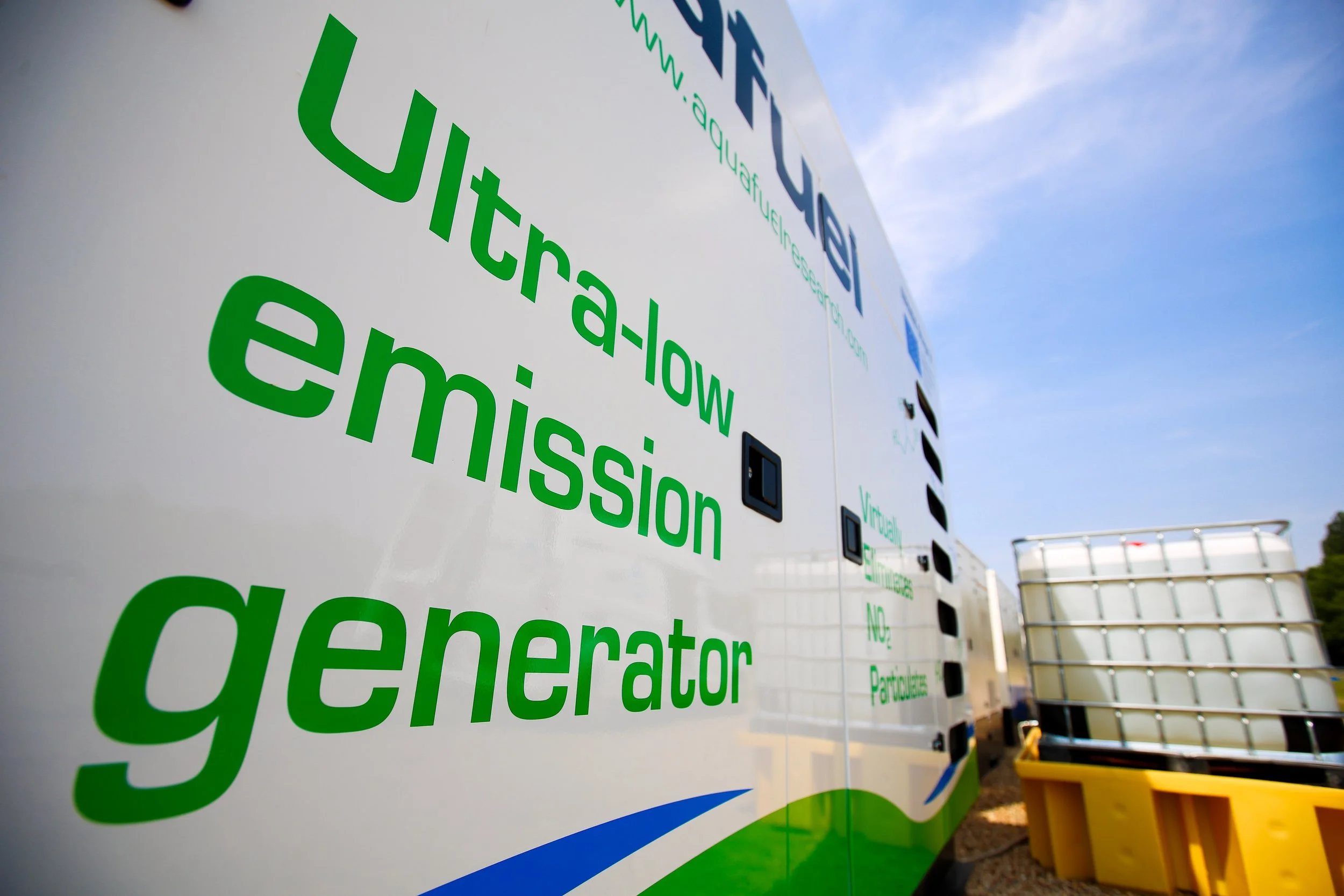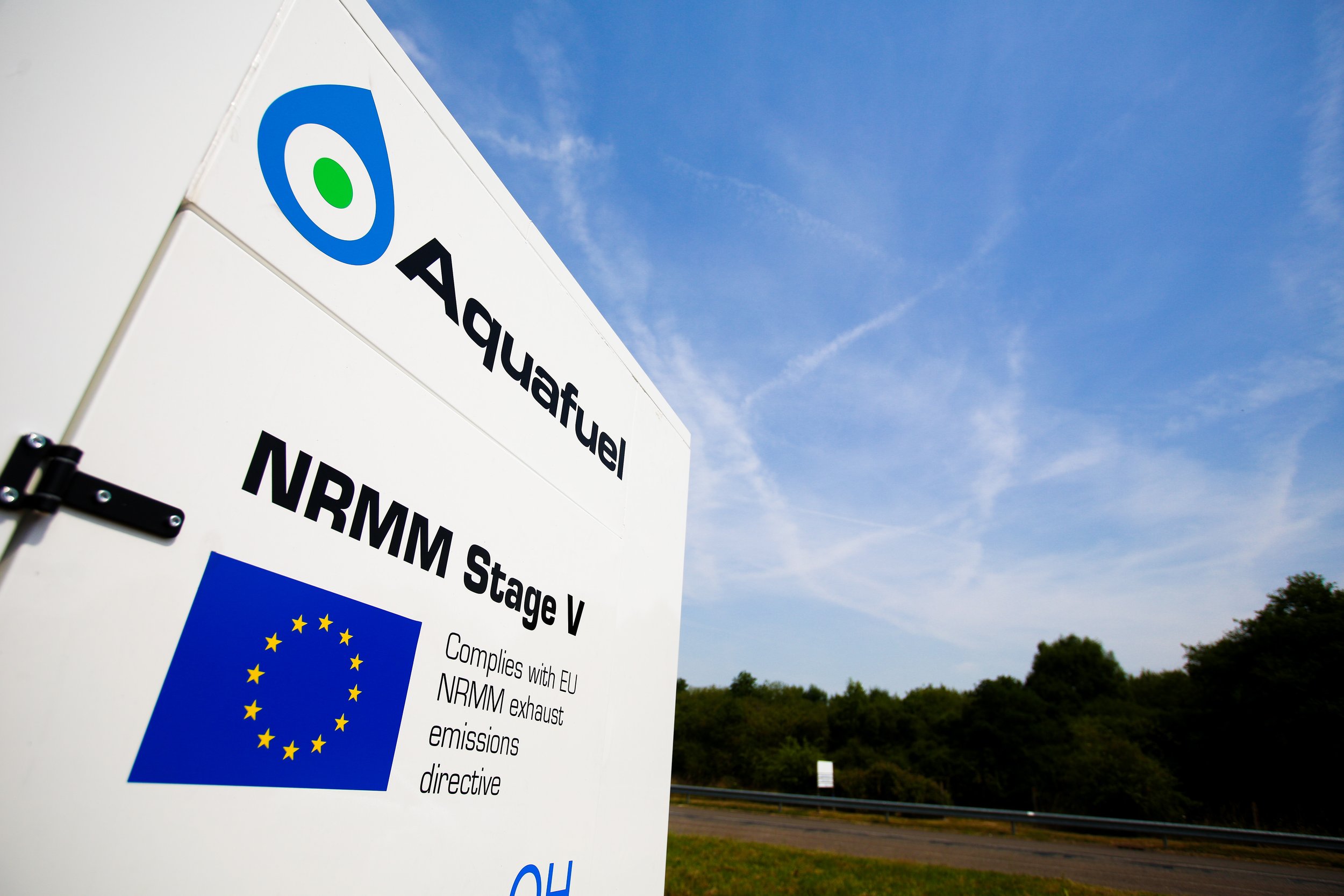
Aquafuel is a British technology company manufacturing ultra-low emission low-carbon solutions.
About Aquafuel
Our technology cuts carbon emissions, reduces pollution and improves our customers bottom line. From renewable Combined Heat and Power to powering diesel-free construction sites, Aquafuel provides practical solutions with full service support.
Solutions
Selected Projects
-
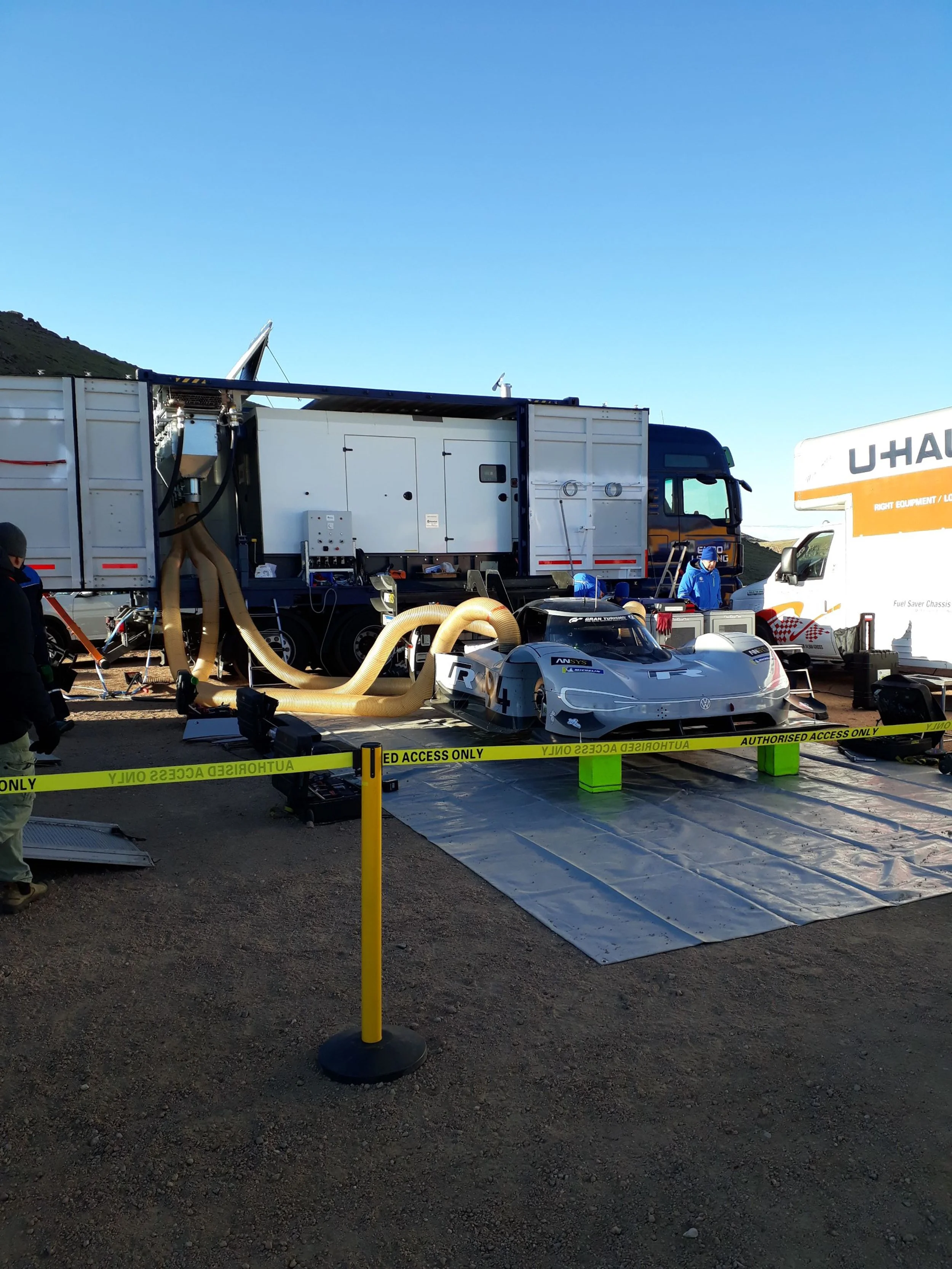
VW Motorsports I.D.R
Aquafuel powered the unique electric prototype with a bespoke ultra-low emission glycerine generator, breaking records from Pikes Peak to Goodwood and the Nurburgring and Chinas Shan Mountain.
-

University of Greenwich Medway CHP
Aquafuel designed and commissioned this 450kW combined Heat and power plant running on a used cooking oil fuel, provides electricity and district heating for this 19th century former naval college.
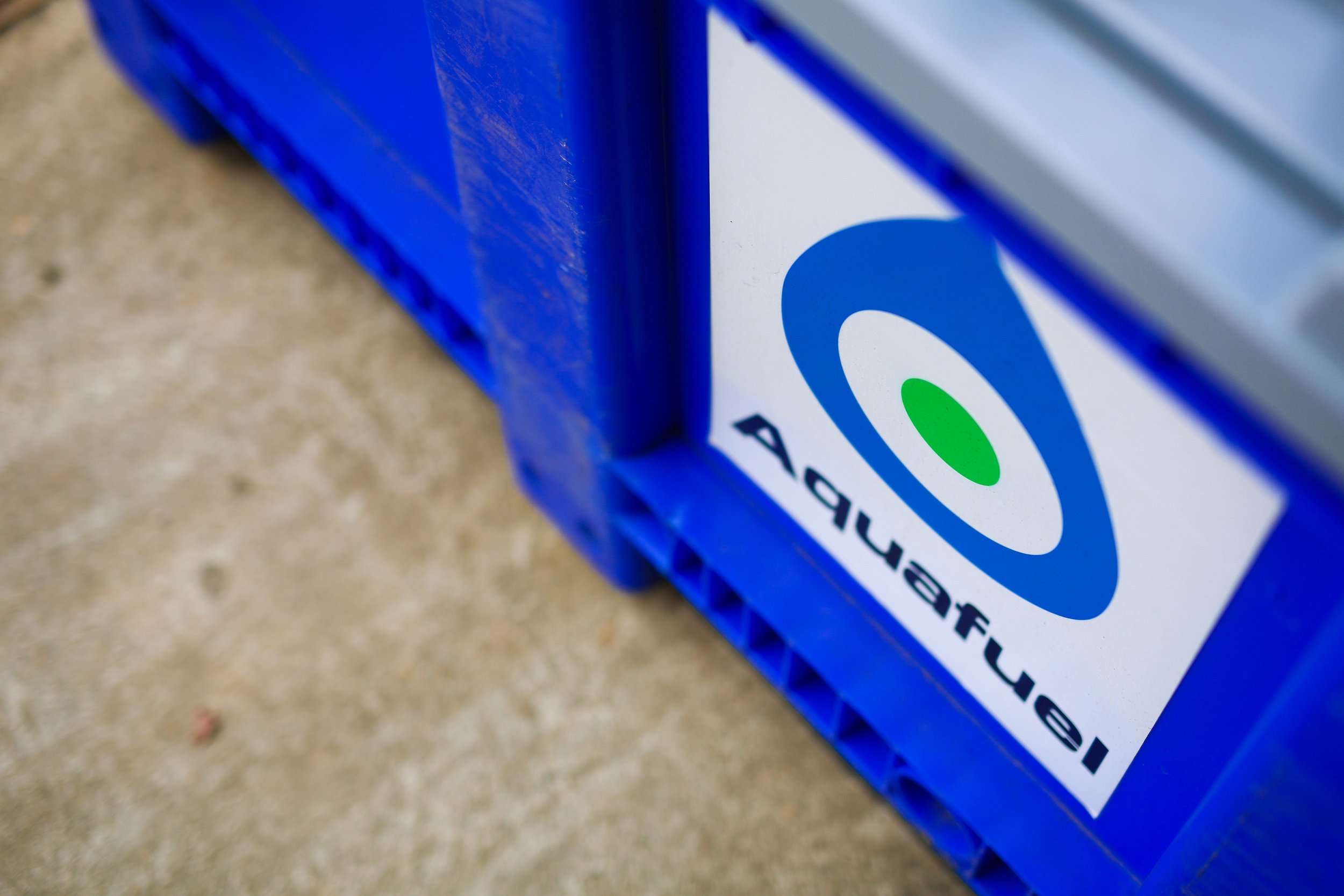
Let’s work together
We are always open to new opportunities. Please get in touch, and we will be happy to discuss your requirements

